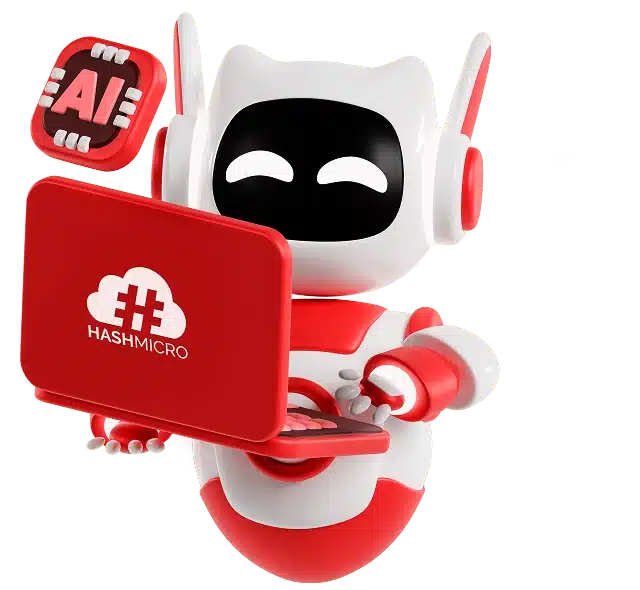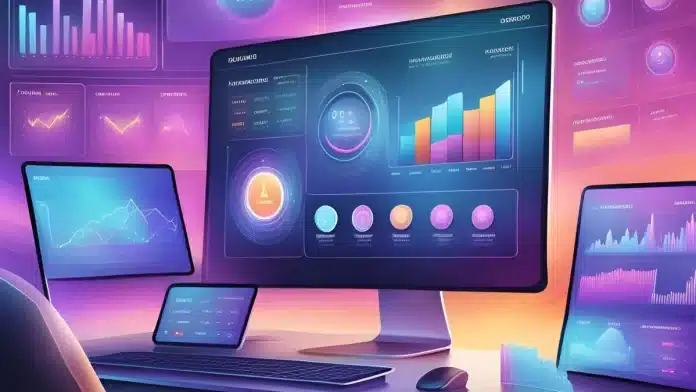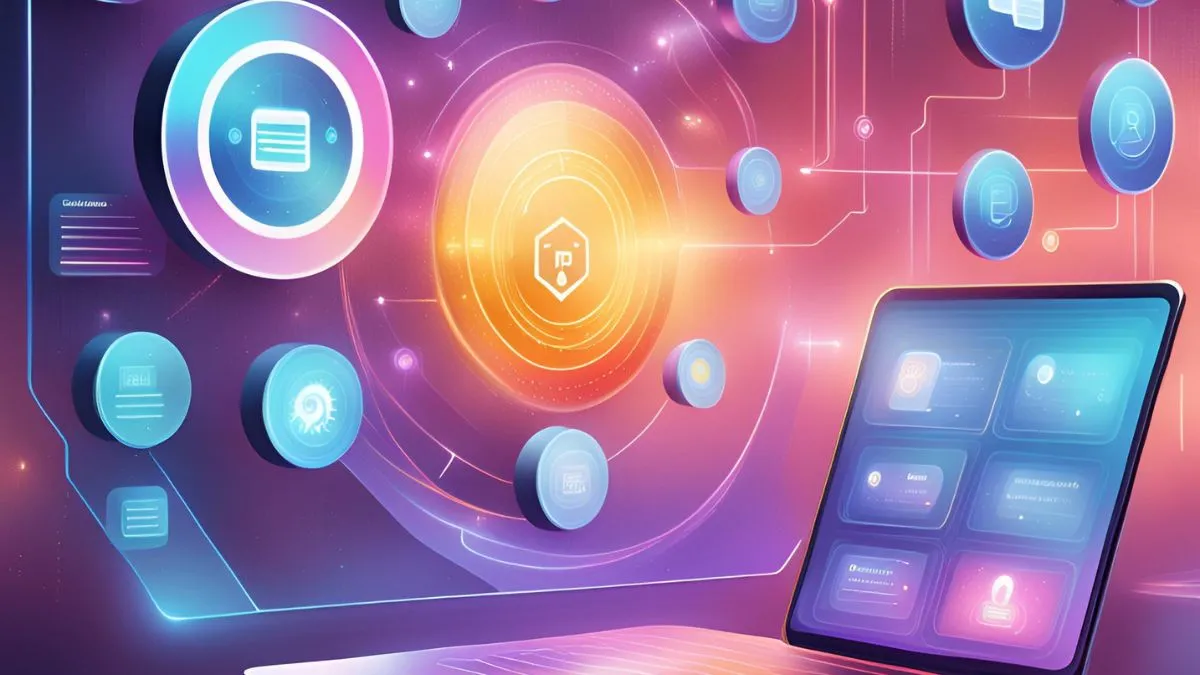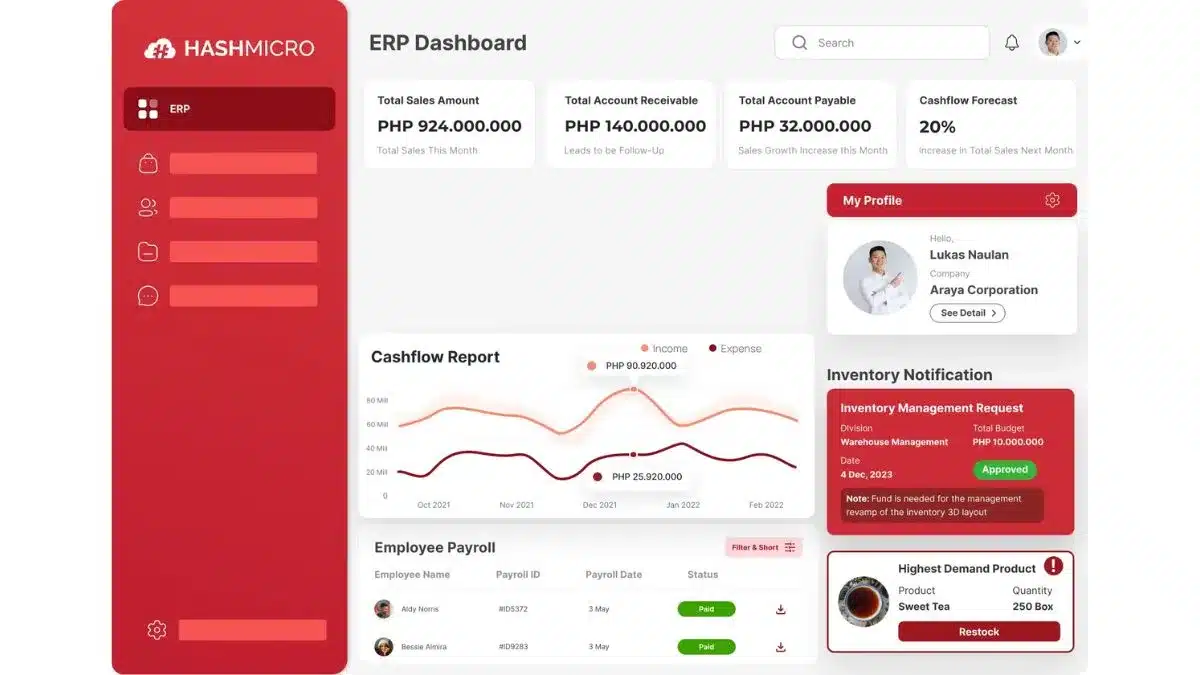Imagine a business environment where decisions are data-driven, processes are automated, and efficiency is maximized. This vision is becoming a reality by integrating Artificial Intelligence (AI) into Enterprise Resource Planning (ERP) systems.
Traditional ERP systems without AI often face challenges like data silos, labor-intensive tasks, and slow adaptability to market changes. These issues can impede a company’s ability to compete effectively.
However, according to a study, 86% of knowledge workers in the Philippines integrate AI into their work routines, surpassing the global average of 75%. This trend underscores a growing recognition of AI’s potential to revolutionize business operations.
Join us in this article as we delve into the benefits, real-world examples, and challenges of integrating AI into ERP systems. Discover how embracing this technology can transform your business operations and drive growth.
Table of Content
Content Lists

Key Takeaways
|
What is AI in ERP?
AI in ERP refers to integrating advanced technologies like machine learning, predictive analytics, and natural language processing into ERP software. These intelligent systems help automate routine tasks, deliver deeper insights, and support smarter, faster business decision-making.
ERP systems transform how companies manage operations, allocate resources, and plan strategically. With features like automated invoice processing and predictive financial forecasting, ERP AI reduces manual effort while improving accuracy and efficiency.
ERP software can analyze large volumes of data to identify patterns and trends that guide more proactive business strategies. For instance, companies can use generative AI in ERP to forecast demand shifts, optimize production, or tailor marketing, making staying competitive in a dynamic market easier.
Hashy AI Fact

Need to know!
AI in ERP streamlines processes, improves decision-making, and boosts efficiency. HashMicro's Hashy AI automate tasks, gain insights, and enhance user experience for increased productivity.
Get a Free Demo Now!
Why is AI in ERP Important?
AI in ERP systems is critical in turning traditional ERP platforms into intelligent, adaptive solutions that support real-time decision-making. ERP AI helps organizations improve efficiency, reduce operational costs, and boost overall profitability by analyzing data continuously and adjusting to changing business conditions.
As ERP software has evolved into a modular and comprehensive tool for managing everything from finance to supply chain operations, its integration with AI has unlocked even greater potential. With ERP software, businesses would gain actionable insights, streamline workflows, and access a unified source of truth across departments.
Recent advancements in generative AI in ERP have pushed innovation even further by enabling intelligent automation, personalized recommendations, and natural language interactions.
Types of AI in ERP
AI in ERP systems comes in many forms, each designed to streamline operations, improve accuracy, and enhance decision-making. These technologies work together within ERP AI platforms to bring automation, intelligence, and usability to a new level.
Below are the key types of ERP software that are transforming how businesses operate:
1. Predictive analytics
Predictive analytics in ERP AI uses historical and real-time data to forecast future outcomes. With AI-powered ERP systems, businesses can anticipate demand changes, identify potential risks, and optimize resource planning.
These forecasts are based on organization-specific behaviors and external market data, allowing for more precise and timely decisions. This type of ERP is especially valuable for industries like retail, manufacturing, and finance, where timing and forecasting are critical.
2. Natural Language Processing (NLP)
Natural language processing helps ERP systems understand and respond to human language in a conversational way. With advancements in generative AI in ERP, such as large language models (LLMs), users can interact with the system more naturally—whether through voice or typed queries.
NLP enables ERP software to handle unstructured text from emails or reports, perform sentiment analysis, and simplify navigation. It enhances user experience by making complex ERP tools more intuitive and accessible.
3. Machine Learning (ML)
Machine learning allows ERP systems to continuously improve their performance by learning from data over time. When applied to ERP AI, ML can reduce forecasting errors, detect anomalies in transactions, and personalize user experiences based on behavior.
These models adapt to specific business environments, making AI in ERP software increasingly relevant for industries with large, complex data sets. ML strengthens ERP systems across the board, from inventory optimization to customer insights.
4. Chatbots and virtual assistants
Chatbots and virtual assistants use NLP to provide real-time help and automate user support within ERP platforms. They can answer employee queries about leave balances and company policies or even guide them through submitting requests without involving HR directly.
These AI tools improve self-service capabilities and enhance employee experience. In ERP AI systems, chatbots also reduce the workload on administrative teams while increasing software adoption.
5. Image recognition
Image recognition, or computer vision, enables ERP software to process and understand visual inputs like scanned documents, photos, or video frames. It allows companies to digitize and analyze paper-based workflows, turning images into searchable or actionable data.
In manufacturing, ERP AI systems use image recognition to monitor product quality or detect defects on production lines. This technology brings an additional intelligence layer to ERP systems that handle visual data.
Generative AI in ERP
Generative AI in ERP is reshaping how businesses operate by enabling ERP systems to perform more complex, human-like tasks. Unlike traditional automation tools, this form of ERP AI uses machine learning to generate content, simulate scenarios, and deliver insights from real-time data.
Below are key examples of how generative ERP software is transforming the enterprise landscape:
1. Automated report generation
Generative ERP can instantly convert raw data into clear, structured business reports without manual input. This automation reduces the time spent on repetitive reporting tasks and ensures consistent formatting and accuracy across all departments.
Reports can be generated on demand or scheduled regularly, giving decision-makers access to critical insights when needed. This ERP example enhances agility and empowers faster, data-driven decision-making.
2. Smart content creation
ERP AI tools powered by generative technology can create content such as internal memos, marketing materials, email drafts, and code. These tools use pre-defined templates or inputs to produce content tailored to specific audiences, increasing personalization and efficiency.
For instance, a sales team might use the ERP system to auto-generate follow-up emails or promotional messages. By integrating smart content creation into ERP software, businesses save time while maintaining consistency in communication.
3. Advanced scenario planning
Generative AI in ERP systems allows companies to simulate different business scenarios and evaluate their potential impact. Whether analyzing supply chain disruptions, regulatory changes, or market shifts, ERP AI can project multiple outcomes and suggest optimal responses.
For example, it can analyze new sustainability requirements and generate action plans to align with green compliance goals. This use of ERP supports more informed, proactive, and strategic planning across departments.
Examples of AI in ERP
AI in ERP systems brings many real-world applications that enhance automation, accuracy, and business agility. From financial forecasting to customer support, these technologies empower ERP software to go beyond basic management functions.
Below are some definitive examples of how ERP AI is transforming industries through smarter workflows and intelligent insights:
1. Predictive maintenance
AI in ERP systems enables predictive maintenance by integrating IoT sensors and digital twins. These tools help monitor equipment performance in real-time and anticipate maintenance needs before issues arise.
By preventing unexpected breakdowns, businesses reduce repair costs and avoid operational disruptions. HashMicro’s AI for Operations supports predictive alerts for expiring stock or reorder suggestions, helping businesses plan ahead and prevent losses.
2. Demand forecasting and spend management
ERP AI leverages historical data to forecast demand and optimize inventory levels accurately. This helps companies plan production more efficiently and avoid stockouts or excess inventory.
AI in ERP software also improves spend management by aligning financial forecasts with actual performance to support more precise budgeting. With HashMicro’s AI for Finance, users can plan budgets based on past trends, reconcile bank statements, and gain key insights into financial performance.
3. Digital transformation and app modernization
ERP supports digital transformation by automating code development, testing, and system migration processes. These smart tools minimize the need for manual programming while ensuring faster and smoother application modernization.
As a result, businesses benefit from more agile systems and reduced implementation time. ERP software helps streamline operations, and HashMicro’s AI for the Supply Chain also modernizes procurement by comparing vendor tenders and managing RFQ approvals.
4. Automated invoice processing
AI in ERP examples frequently includes automated invoice handling, which combines natural language processing (NLP) and robotic process automation (RPA). This integration allows ERP systems to extract, verify, and record invoice data without manual input.
It improves processing speed and minimizes errors in financial transactions. HashMicro’s AR Collector can follow up on unpaid invoices and generate them on the go, while AP Payables AI helps users interact with vendors and track payables updates.
5. Customer support automation
ERP AI enhances customer service by enabling real-time, intelligent interactions through AI-powered chatbots and virtual assistants. These tools help address inquiries, resolve issues, and guide users through self-service processes anytime, day or night.
Generative ERP can also create personalized responses or summaries to support more meaningful engagement. HashMicro’s AI for Sales supports customer interaction by reminding sales teams of activities and assisting in opportunity management and quotation approval.
6. Human resources management
AI in ERP systems boosts HR performance by automating recruitment, onboarding, and employee development tasks. Smart algorithms match candidates to job roles, predict workforce trends, and provide personalized learning recommendations.
HR teams can focus more on strategic initiatives while routine tasks are handled automatically. HashMicro’s AI for HR enables employees to submit leave requests, check balances, view attendance status, and allows managers to review and approve applications with ease.
7. Guided purchasing
Generative ERP software empowers procurement by recommending suppliers or products that meet specific criteria, such as budget limits or sustainability goals. AI-enabled search functions and intelligent recommendation engines help purchasing teams make faster, better-informed decisions.
This improves supplier alignment and supports responsible sourcing practices. HashMicro’s AI for the Supply Chain can assist in comparing vendor quotes, tracking PR status, and automating tender analysis.
8. Process mining
AI in ERP software uses process mining to evaluate and improve internal workflows based on historical performance data. These tools reveal inefficiencies, hidden bottlenecks, and opportunities for optimization.
With real-time insights, businesses can redesign processes for greater speed, cost-effectiveness, and compliance. This aligns with HashMicro’s operational AI tools that help monitor internal transfer requests, streamline procurement steps, and improve approval workflows.
9. Anomaly detection
Anomaly detection is among the earliest and most effective AI in ERP examples. It allows the system to detect unusual patterns that signal fraud, compliance issues, or operational errors.
This early-warning capability reduces risk and supports faster resolution of critical incidents. HashMicro’s AI for Finance helps spot inconsistencies during reconciliation or financial analysis to strengthen internal controls.
10. Order and supply chain management
AI in ERP systems helps manage the entire order lifecycle, from tracking inventory and processing orders to predicting delivery disruptions. The system can analyze data across channels to suggest the best fulfillment routes, improve shipping efficiency, and keep customers informed.
It strengthens supply chain resilience and responsiveness to unexpected challenges. With HashMicro’s Inventory AI, businesses can receive low-stock notifications, check stock levels, and even automate reorder requests.

11. Automated summarization
ERP software can automatically summarize lengthy documents—such as reports, contracts, or compliance files—into concise and readable formats. This allows employees to focus on critical insights without sifting through excessive information.
Natural language processing and machine learning help extract the most relevant points accurately. HashMicro’s AI-powered Sales Leaders feature also supports sales insights by summarizing key sales activities and comparing performance across branches or product categories.
Benefits of AI in ERP
AI in ERP systems brings a powerful layer of intelligence that elevates traditional ERP functions to new levels of accuracy, speed, and strategic value. While ERP software already centralizes and streamlines business processes, the integration of AI unlocks even more advanced capabilities.
Below are some of the key benefits of implementing ERP software:
1. Delivers real-time insights and forecasting
AI in ERP systems uses ML algorithms to analyze large datasets and uncover meaningful trends. By processing historical sales data and real-time market conditions, businesses can more accurately predict future demand.
This helps reduce the risk of stockouts, overproduction, or missed opportunities. As a result, companies can make proactive decisions that improve customer satisfaction and operational efficiency.
2. Creates personalized user experiences
Generative AI in ERP can tailor recommendations, communications, and system interfaces based on user behavior and preferences. The system can offer personalized support and product suggestions by analyzing interactions and feedback.
This level of customization improves employee satisfaction and customer loyalty alike. NLP-powered chatbots further enhance user experience by providing intuitive, conversational interactions.
3. Automate routine tasks for greater efficiency
AI in ERP software automates routine tasks such as data entry, invoice matching, and document classification using RPA, ML, and image recognition technologies. This reduces the risk of manual errors and speeds up transaction processing.
Employees can focus on strategic decision-making rather than repetitive admin tasks. Automation also supports business continuity by maintaining workflow consistency.
4. Enhances customer interaction with predictive solutions
With predictive analytics, ERP systems can anticipate customer needs and behavior patterns. Businesses can proactively resolve issues or suggest relevant products before customers even reach out.
This results in more seamless and personalized experiences, ultimately boosting customer satisfaction and loyalty. AI enables companies to stay one step ahead in competitive markets.
5. Offers scalable flexibility for resource efficiency
AI in ERP systems supports dynamic resource planning by adjusting allocations based on real-time forecasts and capacity. This ensures resources such as materials, labor, or inventory are used effectively without excess or shortage.
Companies benefit from leaner operations and improved agility. It’s especially valuable for businesses scaling rapidly or facing fluctuating demand.
6. Improves accuracy and reduces human error
AI-enabled ERP software enhances accuracy by eliminating manual input errors through automation and data validation tools. It can process complex datasets beyond human capability, ensuring consistency and reliability in every transaction.
This is particularly critical in finance, procurement, and compliance-driven environments. Businesses can trust their data for decision-making, audits, and reporting.
7. Monitors operations to maintain integrity and security
ERP AI uses anomaly detection to continuously scan for unusual patterns, such as unauthorized access or irregular transactions. These tools alert stakeholders to potential threats before they escalate into major issues.
By monitoring real-time operations, AI strengthens data security and regulatory compliance. This provides peace of mind in an increasingly digital and data-driven business landscape.
Challenges of AI in ERP
While the benefits of ERP systems are undeniable, successful implementation requires careful planning and awareness of potential obstacles. AI in ERP introduces technical and organizational changes that businesses must be prepared to address.
Below are key challenges that may arise when adopting ERP software:
-
Integration complexity
One of the biggest challenges of implementing AI in ERP systems is integrating AI tools with existing ERP components. For AI to generate accurate insights, it relies on clean, structured, and centralized data from multiple departments, such as finance, HR, and supply chain.
Disconnected systems or inconsistent data can limit the effectiveness of ERP software. To overcome this, companies need ERP AI solutions that support seamless integration and modular architecture.
-
Change management
AI in ERP often reshapes workflows and decision-making processes, requiring employees to adapt to new tools and working methods. This transition may create resistance, especially if staff fear automation will replace their roles or are unfamiliar with AI-driven systems.
Proper change management—including training, communication, and leadership support—is essential to building trust and confidence. A culture that embraces innovation is key to realizing AI’s full potential in ERP examples.
-
Skill gaps and talent shortage
Implementing ERP AI systems may demand advanced knowledge in machine learning, data science, and AI integration—skills not all teams have. Organizations may struggle to find or afford qualified talent in a competitive market for AI professionals.
Alternatively, they must invest in upskilling current employees through structured training and development programs. Addressing this challenge early ensures that businesses can fully leverage the value of ERP software.
AI in ERP Best Practices
Using AI in ERP systems can bring great results, but businesses need to follow the right approach to get the most out of it. Here are some simple and effective best practices to help ensure your ERP AI implementation is successful and sustainable.
- Establish strong data governance: AI in ERP works best when the data is clean, accurate, and well-organized. By managing your data carefully, you can help the AI give better insights and make smarter decisions.
- Invest in scalable infrastructure: Your ERP AI system needs a strong and flexible IT setup to perform well as your business grows. A scalable infrastructure—whether cloud or hybrid—makes handling large data, fast processing, and future AI features easier.
- Define a clear integration strategy: Make sure the AI tools in your ERP system are well connected to your core business processes. A clear plan for integration helps everything work smoothly and ensures that AI supports your goals rather than just adding complexity.
- Commit to continuous monitoring and optimization: AI is not a one-time setup—it needs regular checking and updates to stay effective. By reviewing performance and making small improvements over time, you can keep your ERP AI system running at its best.
Future of AI in ERP
The future of AI in ERP is moving toward smarter, faster, and more tailored solutions that reshape how businesses operate. With rapid advancements in AI technology and rising expectations for intelligent automation, ERP AI is becoming a critical part of digital transformation strategies.
Below are key trends that will define the next chapter of ERP systems:
- Industry-specific AI solutions: ERP is shifting toward more customized solutions that meet the unique needs of each industry. From manufacturing to retail, businesses will adopt ERP AI tools that solve sector-specific challenges with greater precision and relevance.
- Democratization of AI tools: User-friendly AI in ERP software will become more accessible to businesses of all sizes, not just tech-savvy enterprises. As interfaces become more intuitive, companies can deploy AI-driven features without requiring deep technical knowledge.
- Rise of explainable AI (XAI): As ERP systems become more advanced, understanding how AI makes decisions will be increasingly important. Explainable AI will help build trust by making complex processes more transparent and easier to interpret.
- Hyper automation in ERP systems: Future ERP AI platforms will go beyond automating simple tasks and move toward full-process automation across departments. This trend, known as hyper-automation, will allow companies to boost efficiency, reduce costs, and streamline operations at scale.
- AI governance and ethical standards: As generative AI in ERP grows, so does the need for clear policies around data use, privacy, and accountability. Businesses must adopt ethical frameworks to ensure responsible AI use and maintain trust across their operations.
- Cross-platform and scalable AI integration: ERP systems will evolve seamlessly across different modules and platforms, supporting a more unified business environment. This flexibility will allow companies to scale operations efficiently and maintain consistency across departments.
Ready to Take Advantage of AI in ERP? Check Out HashMicro
HashMicro’s ERP software offers a smart, integrated solution to automate and optimize core business processes. This intelligent ERP software, powered by Hashy AI, delivers real-time insights, predictive analytics, and decision-making support, helping companies stay competitive in a fast-evolving business landscape.
With built-in AI capabilities like automated reporting, anomaly detection, and demand forecasting, businesses can minimize manual errors, improve productivity, and gain a clearer view of their operations. Experience how ERP transforms routine tasks into smart workflows through a free and personalized demo.
Why do we choose HashMicro? Unlike conventional ERP software, HashMicro’s ERP AI system is built to grow with your business. From cross-module integration to smart recommendations, Hashy AI enhances accuracy, speeds up processes, and empowers users with actionable insights while maintaining flexibility for various industries and business sizes.
Key features of HashMicro ERP Software:
- Built-in Business Intelligence (BI): By transforming and analyzing data from multiple perspectives using built-in BI tools, users can uncover deeper insights to support smarter business decisions.
- WhatsApp Integration: By connecting the system directly to WhatsApp, businesses can streamline communication with customers and teams—resulting in faster response times and more efficient workflows.
- Mobile Apps: Through mobile apps available on iOS and Android, users can access the ERP system anytime and anywhere, which supports real-time updates and on-the-go decision-making.
- Sheet Management: By enabling secure automation and analysis of spreadsheet-based documents within the system, users can manage data more efficiently while ensuring accuracy and seamless module integration.
- Access-Level Control: By assigning system access based on employee roles and responsibilities, companies can protect sensitive information and maintain operational control across departments.
Hashy AI is designed to think ahead—helping your team focus on strategic goals instead of repetitive tasks. Ready to explore what ERP can do for your business? Schedule a free demo today and experience the next generation of enterprise automation with HashMicro!
Conclusion
AI in ERP is no longer just a technological upgrade—it has become a strategic advantage for businesses aiming to improve efficiency, accuracy, and agility. By combining automation with real-time insights, ERP systems empower organizations to make smarter decisions and stay ahead in an increasingly competitive landscape.
For businesses looking to adopt an intelligent ERP solution, HashMicro offers a powerful, AI-driven ERP software that seamlessly integrates core functions like finance, HR, inventory, and sales. With built-in AI capabilities, HashMicro helps organizations unlock greater productivity and control across all operations.
Take the first step toward a smarter and more efficient business today—schedule a free demo with HashMicro and experience how ERP can transform your day-to-day operations and long-term growth.












































